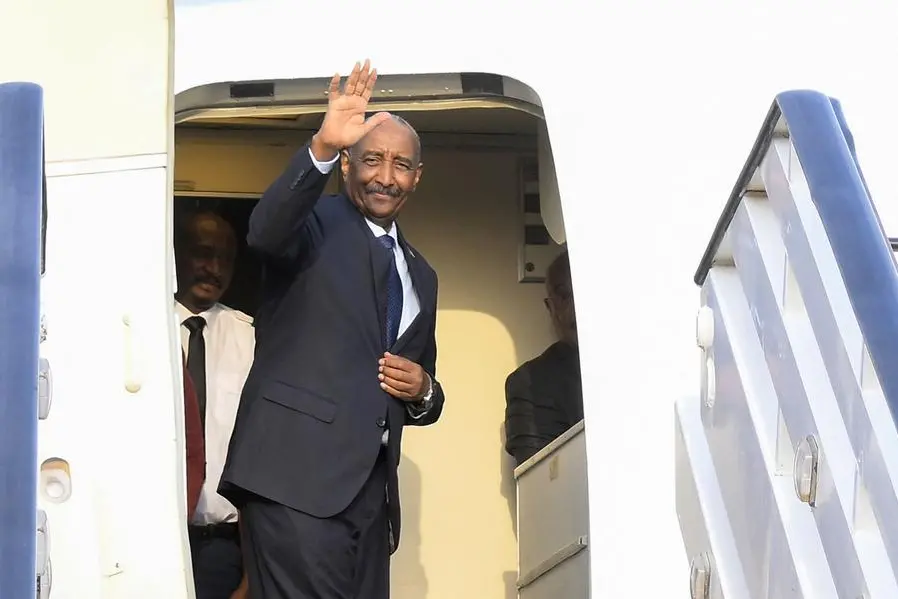PHOTO
Sudanese army chief Abdel Fattah al-Burhan arrived in Doha on Thursday for talks with Qatar's emir, officials said, his third trip abroad during his nearly five-month war with paramilitaries.
Burhan and Qatar's Sheikh Tamim bin Hamad Al-Thani would "discuss bilateral relations, issues of common interest, and the situation in Sudan", Sudan's ruling sovereign council said in a statement.
Burhan was seen walking along a red carpet from his plane with Mohammed bin Abdulaziz bin Saleh Al Khulaifi, minister of state at Qatar's foreign ministry, in a photo posted by the official Qatar News Agency on X, formerly Twitter.
Late on Wednesday, Burhan issued a decree dissolving the paramilitary Rapid Support Forces, with whom Sudan's regular army has been at war since April 15.
"The decision comes based on the repercussions of these forces' rebellion against the state, the grave violations they committed against citizens, and the deliberate sabotage of the country's infrastructure," the decree said.
After spending months under seige inside the military headquarters in Khartoum, Burhan made his first foray outside last month and has visited regional allies in recent weeks.
He has since been based in Port Sudan in the country's east, which has been spared the fighting and to which government officials and the United Nations have relocated.
It also hosts Sudan's only functioning airport.
Late last month, he took his first trip abroad to Egypt, historically his closest ally, followed by a visit to South Sudan this week.
Both Cairo and Juba have sought to mobilise efforts to end the fighting, after attempts to mediate in the early months of the war repeatedly floundered.
Multiple truces brokered by the United States and Saudi Arabia were systematically violated, before the two mediators adjourned talks in June.
So far, the war has killed at least 5,000 people, according to a conservative estimate from the Armed Conflict Location & Event Data Project.
It has also forced 4.8 million people out of their homes -- one million of whom have crossed borders -- according to the UN, which expects those numbers to rise further.





















